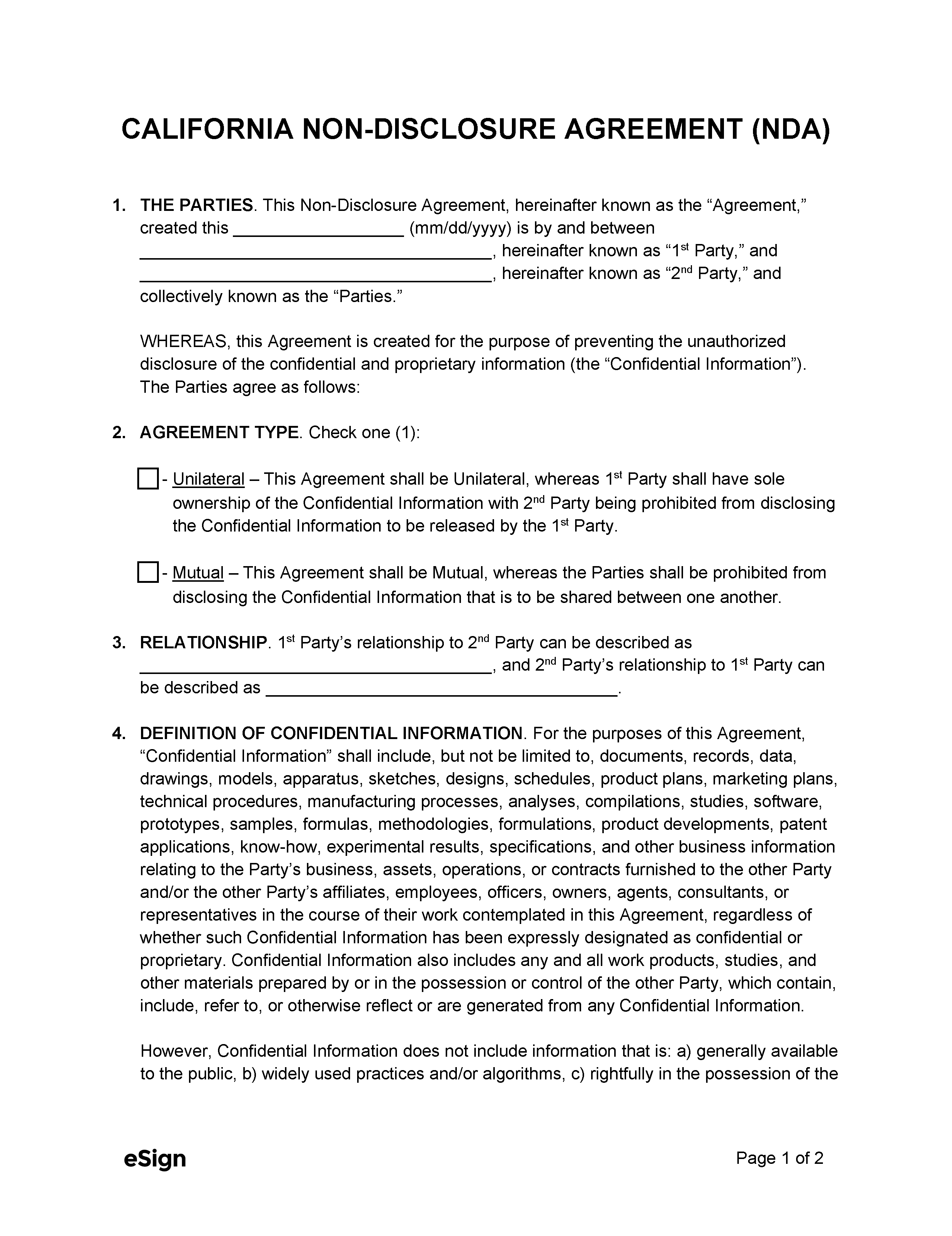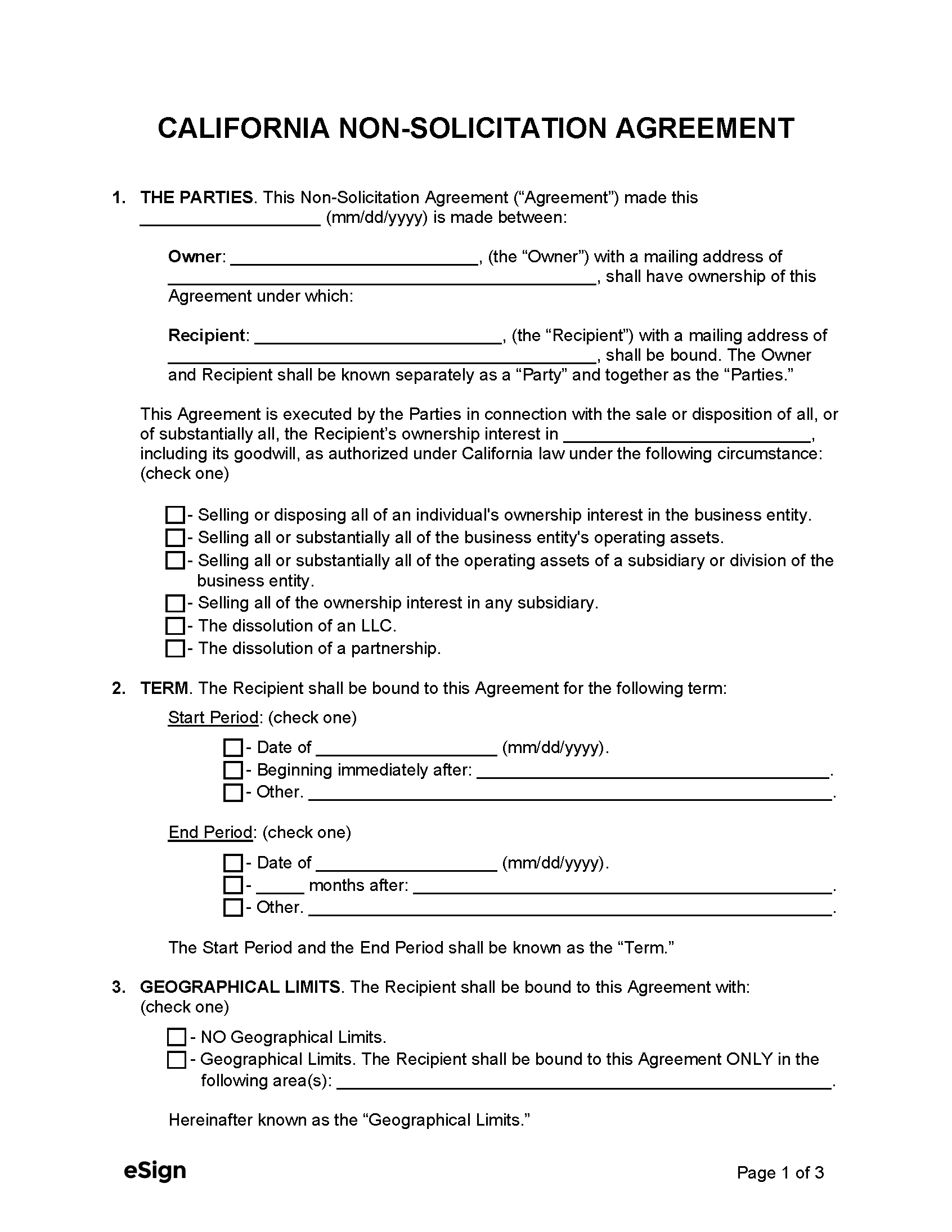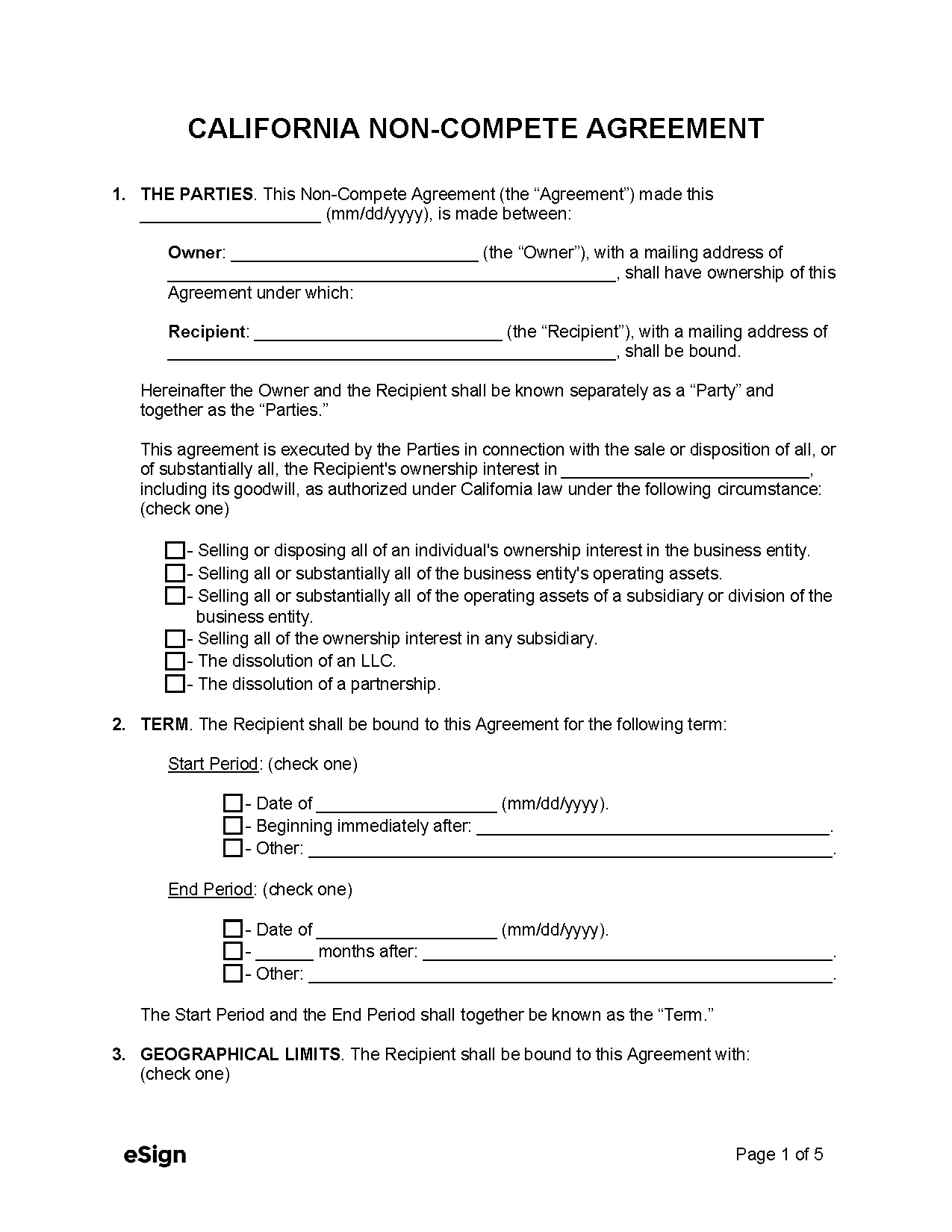In California, non-compete agreements between employees and employers cannot be enforced, regardless of the occupation.
Contents |
Enforceability in California
Non-compete agreements are enforceable to protect the purchaser of a company against competition from the seller or to protect a partnership or LLC from competition from a parting member.[1][2][3]
Employers cannot enforce a non-compete agreement against an employee.[4]
When it IS Enforceable
- Selling a business. Non-compete agreements can be administered to prevent a seller of an entity from operating in a similar field in the same geographic region.[1]
- Dissolution of partnership or LLC. A member disassociating from a partnership or limited liability company may agree to enter into a non-compete agreement to refrain from carrying on a like business in the geographic area where the partnership or company operates.[2][3]
When it’s NOT Enforceable
- Employers and employees. A business owner cannot include a non-compete clause or agreement in an employment contract. No person can be restricted from working in their domain by written agreement unless provided otherwise by law.[4]
Maximum Time Period
California law does not state a time limit for non-compete agreements as they are generally unenforceable. However, should an exception apply, both 5-year and 10-year non-compete covenants have been deemed enforceable.[5][6]
Geographical Area
A non-compete agreement restricts a seller of a company or a member disassociating from a partnership or LLC from conducting a similar business in the area where the company or partnership operates. The agreement may be enforced provided the buyer of the company, or a member of the partnership or LLC (or any party with an interest or who has derived ownership to the company or partnership) continues to conduct business in that area.[1][2][3]
In one case, the court approved a non-compete agreement that applied to the entire state of California as the plaintiff conducted business with companies located across all fifty-eight (58) counties in California.[7]
Sources
- Cal. Bus. & Prof. Code § 16601
- Cal. Bus. & Prof. Code § 16602
- Cal. Bus. & Prof. Code § 16602.5
- Cal. Bus. & Prof. Code § 16600
- Hakenjos Hall Prof’l Servs., Inc. v. Bland, No. D067385, 2 (Cal. Ct. App. Mar. 2, 2016)
- Dent Mart Int’l, Inc. v. Iden Dental Supply, Inc., No. B253743, 32 (Cal. Ct. App. May. 20, 2015)
- Alliant Ins. Services, Inc. v. Gaddy, 159 Cal.App.4th 1292, 1305-06, 72 Cal. Rptr. 3d 259 (Cal. Ct. App. 2008)
- Kolani v. Gluska, 64 Cal.App.4th 402, 407, 75 Cal. (Cal. Ct. App. 1998)
- Swenson v. File, 3 Cal.3d 389, 395, 475 P.2d 852 (Cal. 1970)
Related Forms (2)

Download: PDF, Word (.docx), OpenDocument

Download: PDF, Word (.docx), OpenDocument
